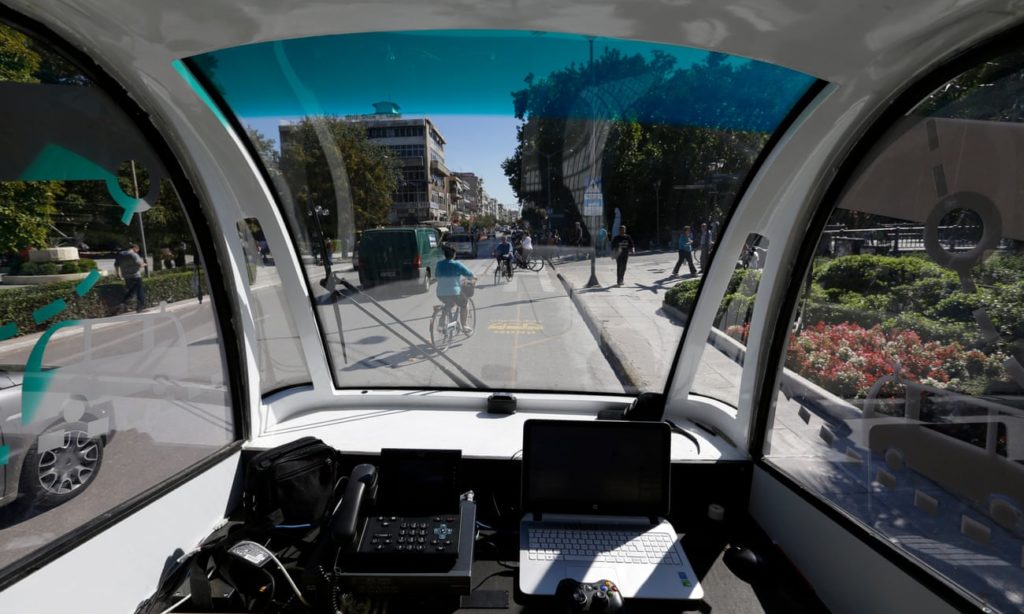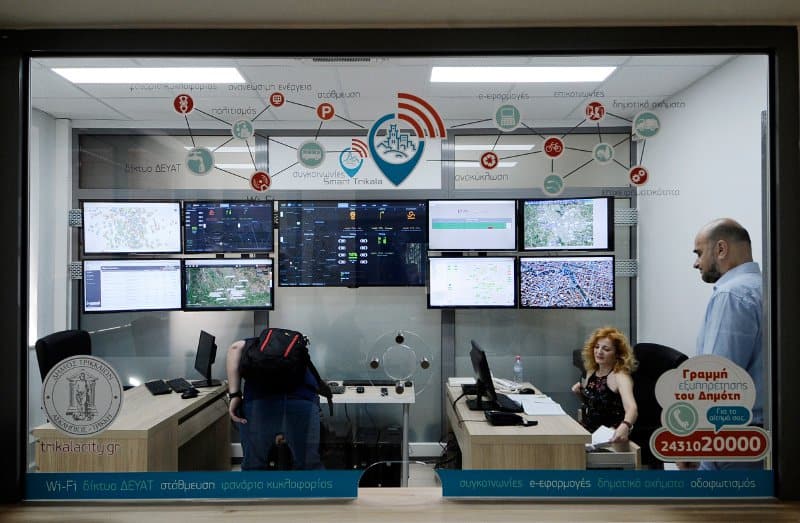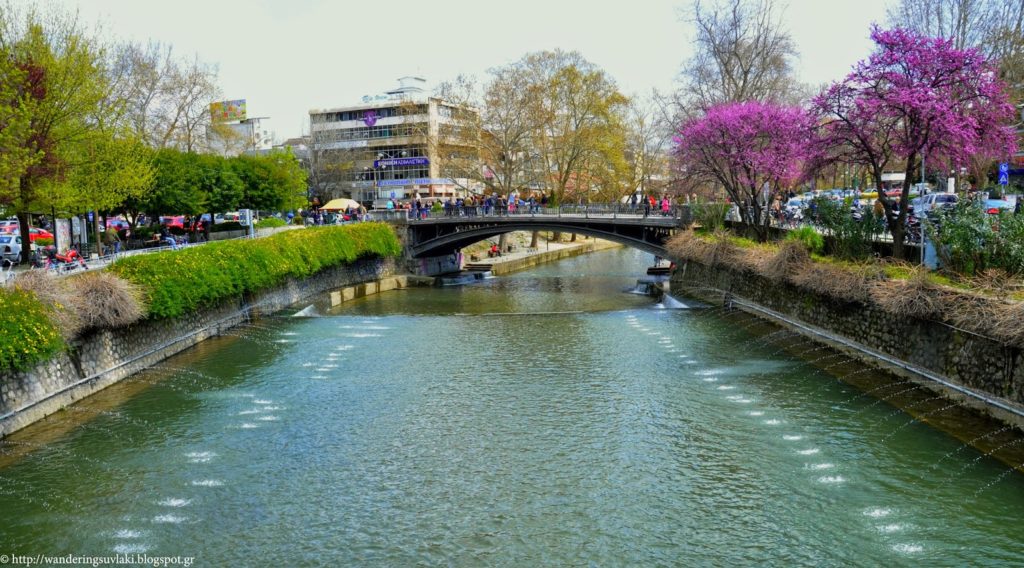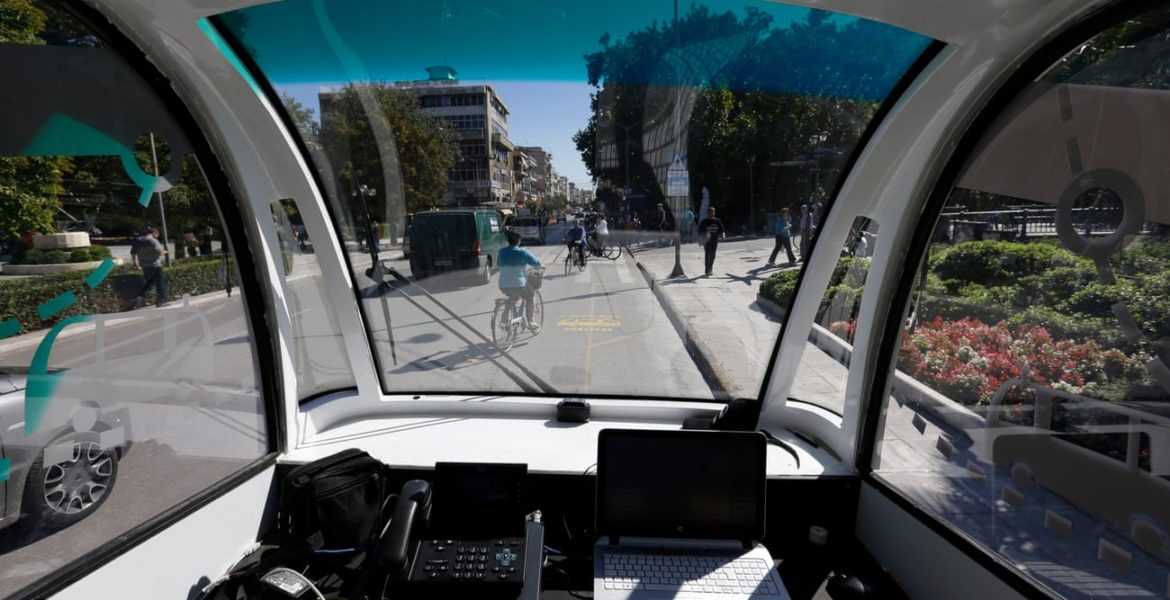
The Guardian newspaper recently spent time in Trikala, Greece's first smart city and has named it one of the 'smartest city's in the world,' highlighting the great initiatives that have been introduced here and how much technology has changed the lives of its locals.
Trikala, in the rural heart of Greece, is probably one of those candidates who never imagined that it could be a top smart city, however, innovations have improved the lives of residents despite the economic crisis.
“In the past, residents had to call the vice mayor just to change a broken street lamp,” says Sonia Sofou, a police officer turned civil servant. “Now you don’t need to know a politician to get something done.”

The 37-year-old is hard at work in the control room of Trikala, Greece’s first smart city. On the wall, nine screens display colourful maps and graphs monitoring the availability of parking spaces, the status of traffic lights and water pipes, the location of rubbish trucks and the town hall’s monthly budget.
Sofou answers the phone, logging reports of uncollected rubbish and fallen tree branches into the small city’s e-complaint system. As she works, the information shows up on one of the screens above her.
Smart cities – usually defined as those that use technology to improve services, increase transparency and become more efficient – are proliferating around the world. Pioneered in Europe, they can now be found everywhere from India to Korea and finding ways to make cities work better for the people who live in them has become a priority. Major companies such as Intel, Cisco Systems and IBM are involved in researching new applications in this growing field.

Set among green fields in the agricultural heartland of Greece, the historic city of Trikala – population 82,000 – was not an obvious candidate for the nation’s first smart city.
The country was in the grips of a financial crisis and the municipality was €45m (£40m) in debt when Dimitris Papastergiou became mayor in 2014. There was zero budget for his grand, tech-savvy plans.
But through collaborations with partners including the European Commission and companies such as Greece’s Sieben and Parkguru, Trikala has earned a reputation for innovation that dates back to 2004 when Greece’s Ministry of Economics named it the nation’s first digital city. It was later shortlisted as one of the top 20 smart cities in the world. By participating in EU-funded projects and offering up a test site for local tech companies, the city has cut its debt by €20m.
Out of all the projects, the e-complaint system has had one of the biggest impacts on residents’ lives. Since the start of the year, the municipality has received about 4,000 requests and comments. About 10% came from a smartphone app released last year, according to the municipality, and issues are resolved more quickly (averaging eight days rather than a month) – plus the whole process is more transparent.
Elsewhere, an experiment with sensor-equipped streetlights slashed electricity usage by 70%. The EU project saw a handful of unmanned buses ferry people around the city for six months. Although they got to keep the fibre optics installed for the pilot, Papastergiou admits this last one was more about inspiring citizens than concretely improving their lives. “The main achievement was to persuade the community that there is a change in front of us and we have to be adapted to it.”
Trikala is also the only place in Greece to have supplied Lego to all its 120 public schools, a move paid for by e-Trikala, a company created in 2008 to fund local innovation that is majority-owned by the municipality.
 Over in the echoing corridors of the 7th High School of Trikala, ICT teacher Vassilios Spachos shows off his robotics lab – the first of its size in a Greek public school when it opened in 2015 with a grant from the Stavros Niarchos Foundation and support from the municipality. Standing around tables of hand-built creations that can escape mazes, climb stairs and analyse water quality, he explains why such opportunities are so important for Trikala’s youth.
Over in the echoing corridors of the 7th High School of Trikala, ICT teacher Vassilios Spachos shows off his robotics lab – the first of its size in a Greek public school when it opened in 2015 with a grant from the Stavros Niarchos Foundation and support from the municipality. Standing around tables of hand-built creations that can escape mazes, climb stairs and analyse water quality, he explains why such opportunities are so important for Trikala’s youth.
“This has opened their minds and they have found new jobs that they couldn’t imagine existed,” he says. “For example, when I asked [one student] what he’s going to do after this year, he told me, ‘I will become a doctor, but a robotic doctor.’”
Tech aside, Trikala was also the first city to actually enforce the 2008 national smoking ban in all enclosed public spaces by working with local business owners and using social media to extoll the benefits of ditching cigarettes – although local bars and restaurants initially grumbled about the crackdown.
There were also complaints about the removal of 80 parking spaces to make room for driverless bus lanes, especially when the municipality converted them to permanent bike paths after the pilot ended.
Unsurprisingly, some among the older generation scorn the hi-tech initiatives as pointless. “There are a few who think, we don’t need that,” says 79-year-old retiree George Kiriakoulis, who took a ride on the driverless bus once out of curiosity. “But mostly my friends are positive on these new things.”
This shift in attitudes is one of Trikala’s biggest achievements, says Pantoleon Skayannis, a professor specialising in innovation at the University of Thessaly’s department of planning and regional development.
It “might not be Nasa technology”, he says, “but they create an environment in which citizens are gradually immersed and get used to IT.”
The city has big plans for the future. Trikala wants to join the EU’s Activage programme, which tests smart houses that monitor elderly residents’ health by detecting movement and food consumption. Trikala also wants to further develop a farming project which uses technology to grow ancient medicinal plants for the pharmaceutical industry.
The hope is that the tech farming project will create jobs, especially for young people, and fight one of the biggest problems in Trikala and Greece: brain drain.
*Read the article in full: The Guardian


